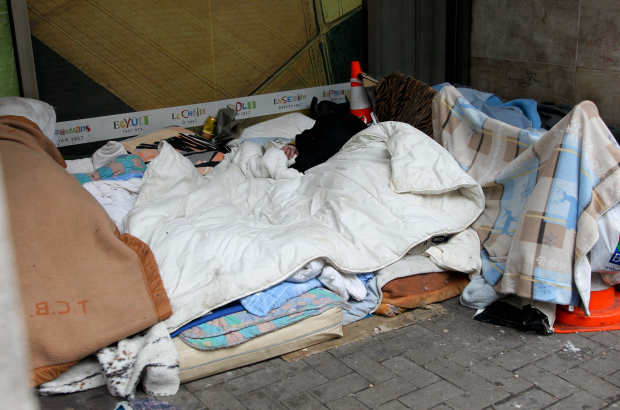- Daily & Weekly newsletters
- Buy & download The Bulletin
- Comment on our articles
Agencies warn of impending crisis as homeless shelters in Brussels reach breaking point
In the midst of a second wave of coronavirus infections, under a curfew and with winter on its way, the capacity for homeless shelters in the Brussels region are at breaking point, and there is a real danger that vulnerable people will be turned away as the number of available places are reduced.
Doctors Without Borders, Doctors of the World, CIRé, the Citizens' Platform Bxl Refugees and SOS Jeunes have raised the alarm in a press release which states that hundreds of vulnerable people, including migrants without a permanent residence, some suspected or confirmed as suffering from Covid-19, are at risk as the number of places in shelters goes into freefall.
According to the five agencies, since the end of September, humanitarian emergency service Samusocial's reception capacity has been reduced by 80 places, due to renovations to its centre on the Boulevard Poincaré and a decrease in subsidies.
They also argue that the response measures of the Brussels authorities do not meet current needs. During the first wave of the coronavirus, those most in need had access to 950 beds in 12 hotels and hostels across Brussels. Now, only about 570 homeless people are being housed in different hotels, at least until 30 June 2021, as health minister Alain Maron announced last week. That's 380 places less than in the first wave.
“It seems unthinkable to us, and certainly inhumane, to consider a step back by sending this population back to the streets,” the aid agencies say. “We believe it is necessary to make use of the progress we have already made - such as the reception and relative stabilisation of homeless people in a shelter structure, psychosocial-medical follow-up and the bond of trust created in that safe environment.”
“The importance of good housing for all cannot be stressed enough: it contributes substantially to the health of the individual and to public health,” the agencies add.
“The Covid-19 crisis has taught us that solutions can always be found in regard to shelter, even temporarily,” they say. The five agencies call for solutions to give all vulnerable people access to testing and tracing, including people housed in places such as squats.
“The administrative barriers that hinder access to health and mental health services must be removed immediately,” the organisations continued. “Our teams are increasingly confronted with the impact of the crisis on the mental and physical health of people in the most vulnerable groups.”
“The psychological problems we face have become so complex and interconnected that it is becoming increasingly difficult for us to provide a sound response.” This crisis, more than any other, should be the time to put in place a structural policy aimed at ending homelessness, the signatory organisations conclude.



















